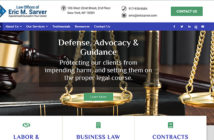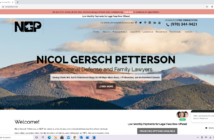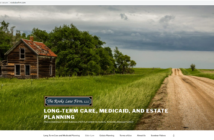Tips for generating a steady flow of referrals from CPAs.
Claudia Moncarz is an international tax attorney who helps global entrepreneurs protect their businesses and minimize taxes. She considers herself a “tax geek” because she loves what she does so much.
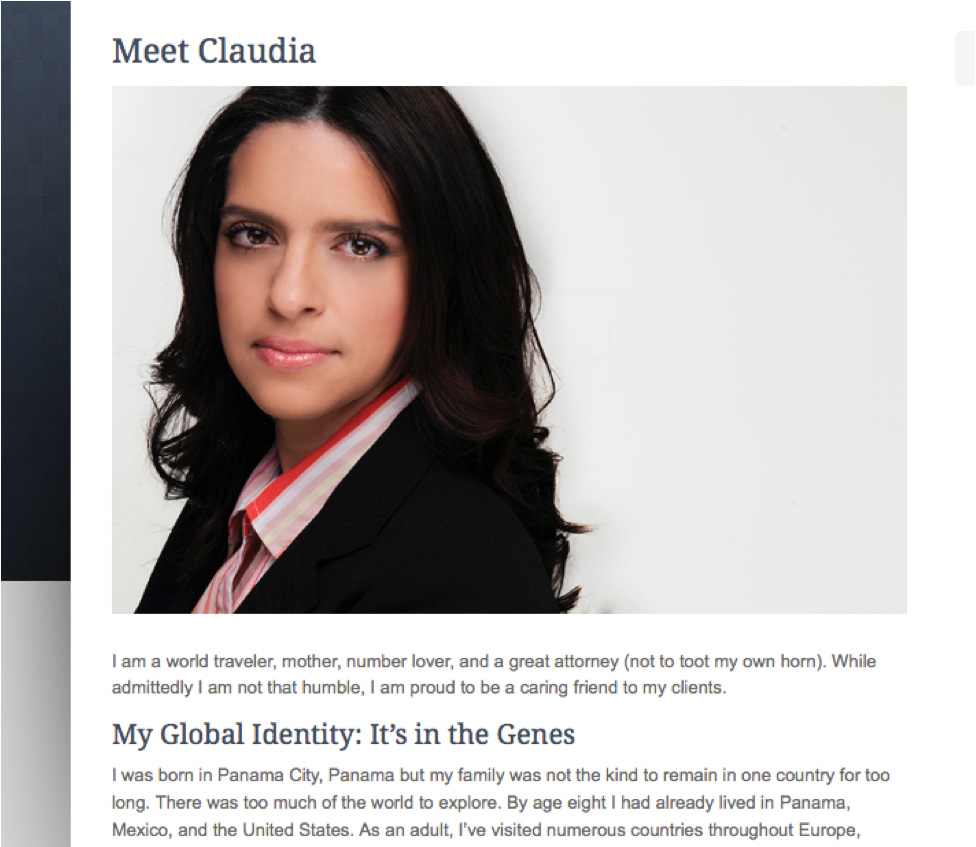
And because what Moncarz does as a lawyer is so niche, she was able to build a completely referral-based practice in a short amount of time.
Moncarz is licensed in the state of Florida. You can find her online at: ClaudiaMoncarz.com.
How Moncarz Markets Herself
When Moncarz was building her practice, she started off by trying one marketing technique at a time. But that just wasn’t working.
“You need more than one marketing strategy,” she says. “You can’t just have one thing that you do, you have to do different things all at the same time. When I was only implementing one technique at a time, that’s when things weren’t working as well as they are now.”
After discovering how important it was to have a marketing strategy that included more than one activity going on simultaneously, the practice started to take off. The marketing activities she decided to focus on are teaching seminars and sending out a monthly newsletter.
“When you’re doing seminars, you need to do both seminars and newsletters,” she says. “You can do a seminar once a month and give brilliant information and everyone can be really excited about it, but if you don’t have something to remind them about you—like a newsletter—it’s a wasted marketing effort.”
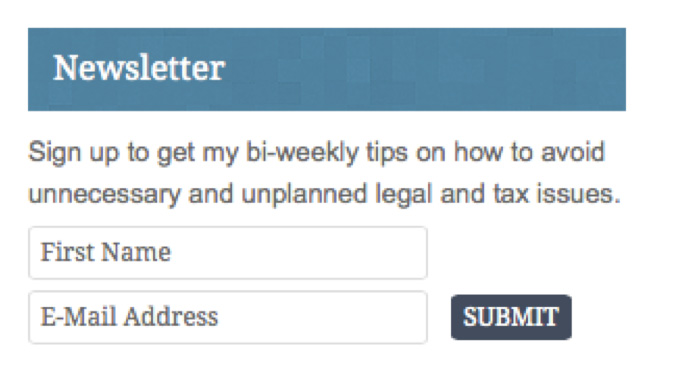
Moncarz has a 100% referral-based business, and she built this up from doing the seminars and sending the newsletters.
“When I did the seminars in conjunction with the newsletters, that’s when I started seeing a difference in how many referrals I was getting,” she says.
The Seminar-Newsletter Marketing Combo—And Why It’s Working
When it comes to teaching seminars, Moncarz has a strategic plan. Rather than going after the clients themselves all the time, she decided to take it a step further.
“I try to teach people who are going to be my referral sources,” she says. “As a tax attorney, a lot of my referral sources are Certified Public Accountants (CPAs). So I teach them about tax issues their clients would need to know about.”
By establishing herself as an expert to her potential referral sources, she was able to connect with them enough to have them send client referrals her way.
Of course it’s not always easy to get connected—and stay connected—with these referral sources. So Moncarz makes it a priority to stay connected.
“I send a newsletter out every month,” she says. “It’s been my experience that a newsletter is the key to keeping you top-of-mind with people.”
Her newsletter also gets sent out to her current and former clients who have opted in to receive it.
When it comes to the topics she covers in the newsletters, she tries to make them an extension of the seminars that she teaches.
“I use my newsletter content to try and help make my referral sources look better to their clients,” Moncarz says. “So I teach them the important things they need to know. And then when they have an issue that goes beyond the scope of what they can handle they will usually refer the client to me because they know I’ve been helping them along the way.”
The other thing that helps Moncarz get referrals is the fact that her area of law isn’t widely practiced.
“There aren’t many people who do what I do,” she says. “So that helps.”
In order to get people to opt-in to be on her email list, she offers a recording from a tax planning webinar she does for Ex-Pats as a free gift to get people signed up. She also has several opt-in forms in different places on her website, making it easier for people who visit to opt-in.
But that’s not the only way she gets people to opt-in.
“What I usually do at the end of my seminars is I tell attendees if they want a copy of the PowerPoint presentation or to sign up for my newsletter, they should give me their email info,” she says. “I collect their information on the spot and get their permission to let me send emails to them.”
Where She Does Her Seminars—and Why She Does Them For Free
Moncarz’ approach to teaching seminars is to give everything away.
“In my seminars I tell attendees, ‘here’s all the information you need,’” she says. “I tell them exactly what to do to spot the issues or problems they may have. And then I tell them if they think it’s too complicated to do on their own, they can come to me and I’ll do it for them. It’s been my experience that when you give out information and content for free, eight times out of 10 they come back and hire you to help them because they realize it’s not their expertise.”
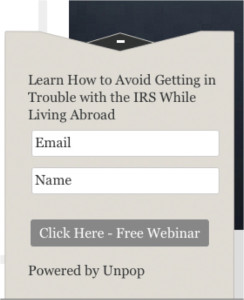 When it comes to finding places to do her seminars, Moncarz’ strategy is to “go where your ideal client is congregating.”
When it comes to finding places to do her seminars, Moncarz’ strategy is to “go where your ideal client is congregating.”
“I like to get referrals from accountants, for example,” she says. “Accountants have associations they’re part of, just like lawyers, where they go to get training. So I go to these types of places and give lectures.”
The other thing she does is offers seminars for other lawyers, but she warns that this must be done strategically.
“I’ll do seminars for immigration lawyers, for example,” Moncarz says, “because these lawyers have foreigners that may need an international tax lawyer to make sure that when they come to the U.S. they’re doing their taxes right.”
In order to find the best locations for in-person seminars, Moncarz says you need to “put yourself in the shoes of your ideal client and think about: what do they read; where do they hang out; what groups do they join, etc.”
And she is constantly trying to improve her offerings.
“I try to get feedback at every seminar,” she says. “I do a little survey at the end to see what I can do to make it better next time. There’s always room for improvement in everything.”
What To Do If You’re Concerned About Giving Away Too Much For Free
Moncarz has made it her business to give knowledge and information away to her potential clients and referral sources for free. But she acknowledges that many lawyers are leery of this approach.
“A lot of times lawyers are afraid of giving away too much information,” she says. “And they’ll say to me, ‘what if I give it all away and then the person doesn’t hire me?’ and I get that. But you just have to tell people, ‘these are potential solutions I’m offering, but you should still consult a lawyer because it’s not a one-size-fits-all solution.
“If they know they have a problem and there’s a potential way to fix it, for the most part they’ll come to you,” she says. “And if they don’t want to come to you, you probably wouldn’t have wanted them as a client anyhow.”
She recommends freely giving out the information—and being as specific about it as possible.
“What I try to do is give specific examples in every seminar,” she says. “People really like this, especially because the law can be a lot of theory, and that can get boring for non-lawyers. In order to make it more personal, you have to put examples in there. We have to give them an idea of how to fix the problem they’re having.”
How She Focused Her Efforts to Get Even More Referrals
Two years ago, Moncarz started keeping a running tab of who, specifically, was referring the most business to her. And interestingly enough, it turned out she wasn’t getting referrals from the places she thought she’d be.
“I thought bankers would be a good source of referrals for me, but it turns out they’re really not,” she says. “When you’re 100 percent referral based, you need to keep track of who sent each referral to you, and then you can use that information to target your market even more by focusing your efforts. Once I realized bankers weren’t really a good referral source for me, I stopped focusing my seminars on them and instead focused on the groups that are really good at sending me referrals.”
Final Tips From Moncarz
“Another tip is that you have to do marketing all the time,” she says. “I know it’s hard because you’re a lawyer, you’re busy and you want to focus on your clients, so marketing gets pushed aside. But you can’t do that anymore. You have to always have something in the pipeline, especially if you’re a solo practitioner.”
In fact, someone once gave her the very advice she now gives to other lawyers with regards to marketing.
“The time to market yourself isn’t when you no longer have work—that’s not going to be productive,” she says. “You have to treat your marketing like you would a client and set aside time to do it regularly.”
Another thing she considers key to a successful law business is to study marketing as much as you can.
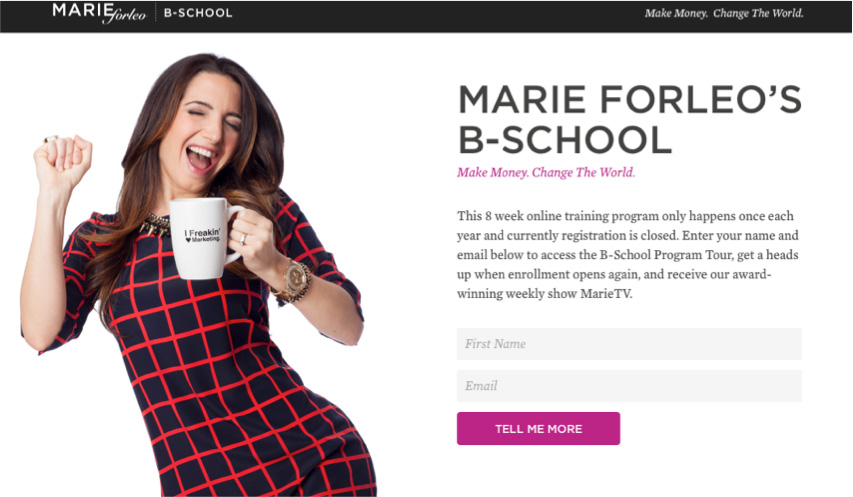
“In law school they don’t teach you about marketing, but at the end of the day this is a business,” she says. “I learned how to do marketing by taking classes and programs run by people who are good at marketing, like Marie Forleo’s B-School.”
Moncarz was attracted to B-School because she was looking for a way to market her law practice online.
“I knew that Marie knows her stuff, she has a huge list, and she’s had a lot of people pay her a lot of money to get trained by her in online marketing techniques—and they’ve never even met her!” she says. “So obviously there’s a way to get people to hire you even when they haven’t met you, and you can make that connection on the internet. I wanted to learn how to do that the right way, so I joined B-School. This was especially important for me because I don’t meet half of my clients; I only meet them on Skype.
“If you’re series about your law business, you should take the time to learn how to market yourself,” she says. “Lawyers have to remember that they need to look outside of traditional marketing techniques. They have to look at people marketing other types of businesses, and use the same principles by applying them to their law practice. You have to think outside the box.”
And finally, she recommends staying in contact with other lawyers—especially in your own area of law.
“I keep in touch with other lawyers—even tax lawyers—so I can strategize with them,” she says. “It’s especially helpful to connect with other lawyers when you’re doing a marketing training program. Because those people are in the same training with you, they’re also thinking outside the box. It’s great to have other attorneys to bounce ideas off of.”

